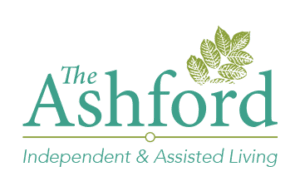Assisted Living 101: Activities of Daily Living
Younger, more able-bodied people often take for granted the ease at which they are able to perform daily tasks such as bathing, dressing, and food preparation.
As we age, not only do these tasks become more difficult–they can pose a threat to our safety.
According to the National Council on Aging, one in four adults over age 65 fall each year, and “falls are the leading cause of fatal injury and the most common cause of nonfatal trauma-related hospital admissions among older adults.”
These worrisome statistics, among others, make a strong case to utilize assisted living services offered at various senior living communities.
Although your mother or father may desire to continue living at home, at the end of the day, it’s important to prioritize his or her safety.
At assisted living communities, professional and friendly team members can provide your parent with the necessary help with ADLs, or “Activities of Daily Living.”
In this post, we’ll cover five areas of assistance for ADLs so you can better understand the value that assisted living communities provide.
Personal Hygiene
From clean skin to brushed or styled hair, having good hygiene and feeling groomed is essential in maintaining both confidence and optimum health.
If your parent needs help with personal hygiene, team members at assisted living communities can help with oral, nail, and hair care.
In addition to assisting with confidence-boosting and hygiene-preserving activities, team members help residents maintain a regular and safe bathing regimen.
According to the National Institute on Aging (NIA), 80 percent of falls occurring in the senior population are in the bathroom–a statistic that makes a strong case for professional bathing assistance.
Continence Management
Although using the bathroom is a private matter, the fact is that emptying one’s bladder becomes more difficult as mobility declines. After a certain point, a grab bar doesn’t provide the necessary level of safety needed.
Continence management includes both one’s mental and physical ability to use a toilet successfully, and assisted living staff can respectfully assist your parent in using the bathroom seamlessly.
Dressing
Whether young or old, what one wears for both casual and formal occasions is important when it comes to comfort or purposes of self-expression.
However, hanging up clothes or dressing for the day ahead can be difficult and dangerous tasks to accomplish as one ages.
Team members at assisted living communities can ensure that putting clothes on and keeping a clean closet are manageable tasks for your loved one.
Meals
The consumption of balanced meals is an essential part of maintaining proper nutrition.
With the social nature of mealtime at assisted living communities, the last thing residents need to worry about is the struggle to feed themselves.
At assisted living communities, professional chefs and helpful team members work hard to make sure that mealtime is smooth and easy for residents.
With these resources at hand, your parent can focus on sumptuous flavors and engaging conversation, instead of struggling to prepare or eat food.
Ambulating
According to Kindly Care, ambulating is defined as “the extent of a person’s ability to change from one position to the other and to walk independently.”
Not all residents enter assisted living needing this kind of assistance, but when their situation changes, team members are there to make moving from one location to another comfortable and possible.
Assistance with Activities of Daily Living significantly decreases the likelihood of falls and other at-home accidents that are common for aging seniors.
However, beyond increased safety, another valuable aspect of assisted living communities is that they provide residents with compassionate and dignified support in accomplishing these activities.
At The Ashford on Broad and The Ashford of Mount Washington, we assess each resident’s level of ability and craft an assisted living care plan tailored to his or her needs.
Have any questions regarding how our team members can support your parent in his or her activities of daily living at The Ashford? Contact us today!












